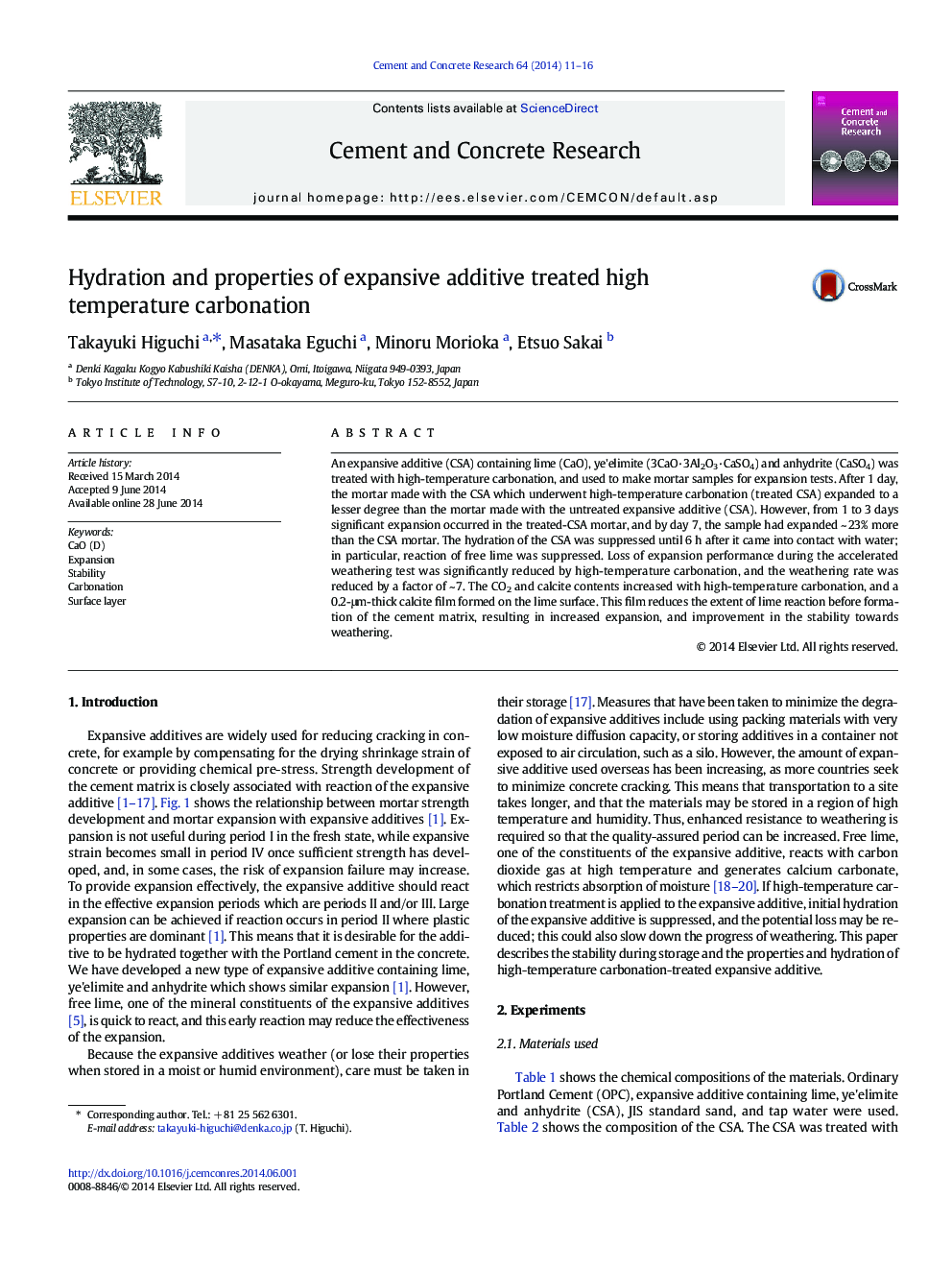| Article ID | Journal | Published Year | Pages | File Type |
|---|---|---|---|---|
| 1456285 | Cement and Concrete Research | 2014 | 6 Pages |
An expansive additive (CSA) containing lime (CaO), ye'elimite (3CaO·3Al2O3·CaSO4) and anhydrite (CaSO4) was treated with high-temperature carbonation, and used to make mortar samples for expansion tests. After 1 day, the mortar made with the CSA which underwent high-temperature carbonation (treated CSA) expanded to a lesser degree than the mortar made with the untreated expansive additive (CSA). However, from 1 to 3 days significant expansion occurred in the treated-CSA mortar, and by day 7, the sample had expanded ~ 23% more than the CSA mortar. The hydration of the CSA was suppressed until 6 h after it came into contact with water; in particular, reaction of free lime was suppressed. Loss of expansion performance during the accelerated weathering test was significantly reduced by high-temperature carbonation, and the weathering rate was reduced by a factor of ~ 7. The CO2 and calcite contents increased with high-temperature carbonation, and a 0.2-μm-thick calcite film formed on the lime surface. This film reduces the extent of lime reaction before formation of the cement matrix, resulting in increased expansion, and improvement in the stability towards weathering.
